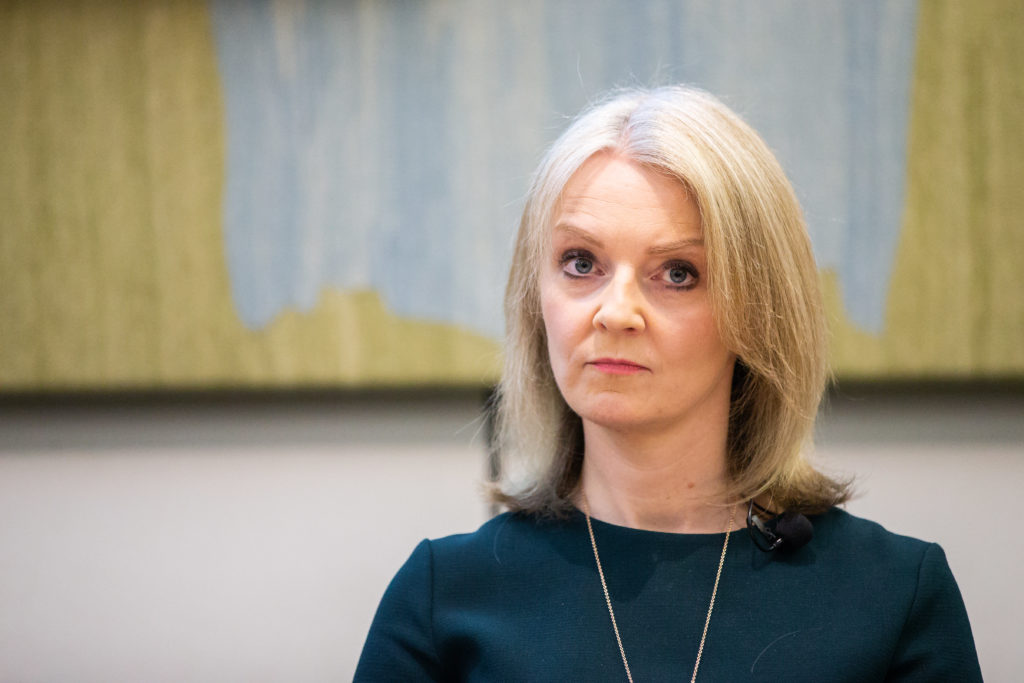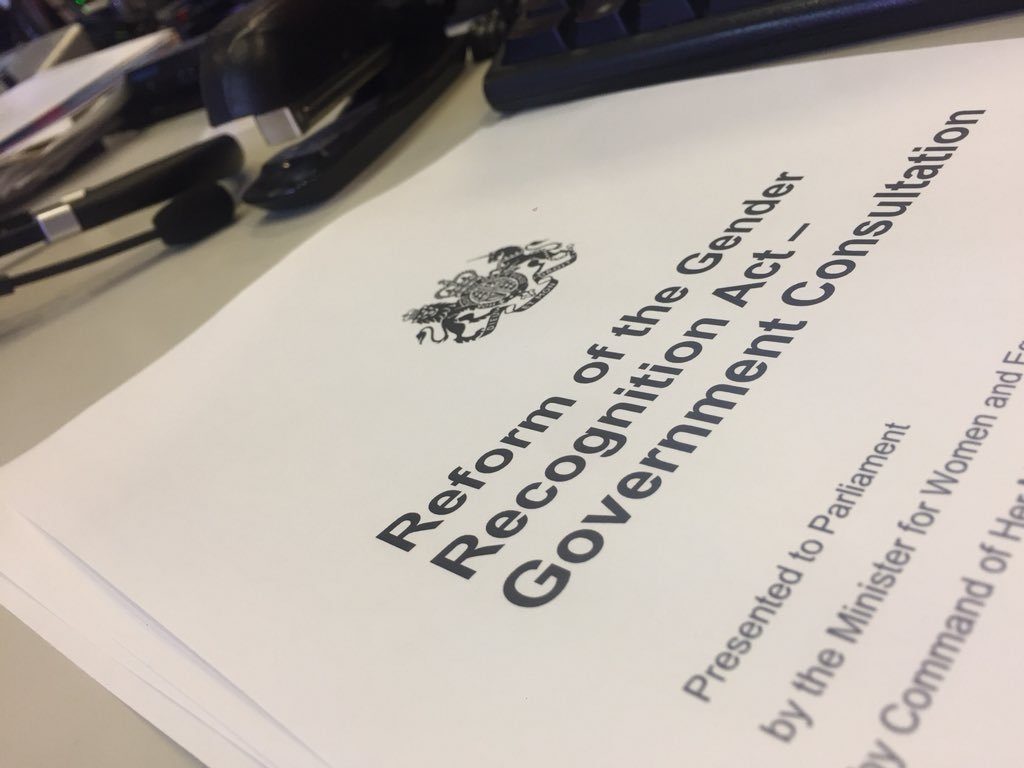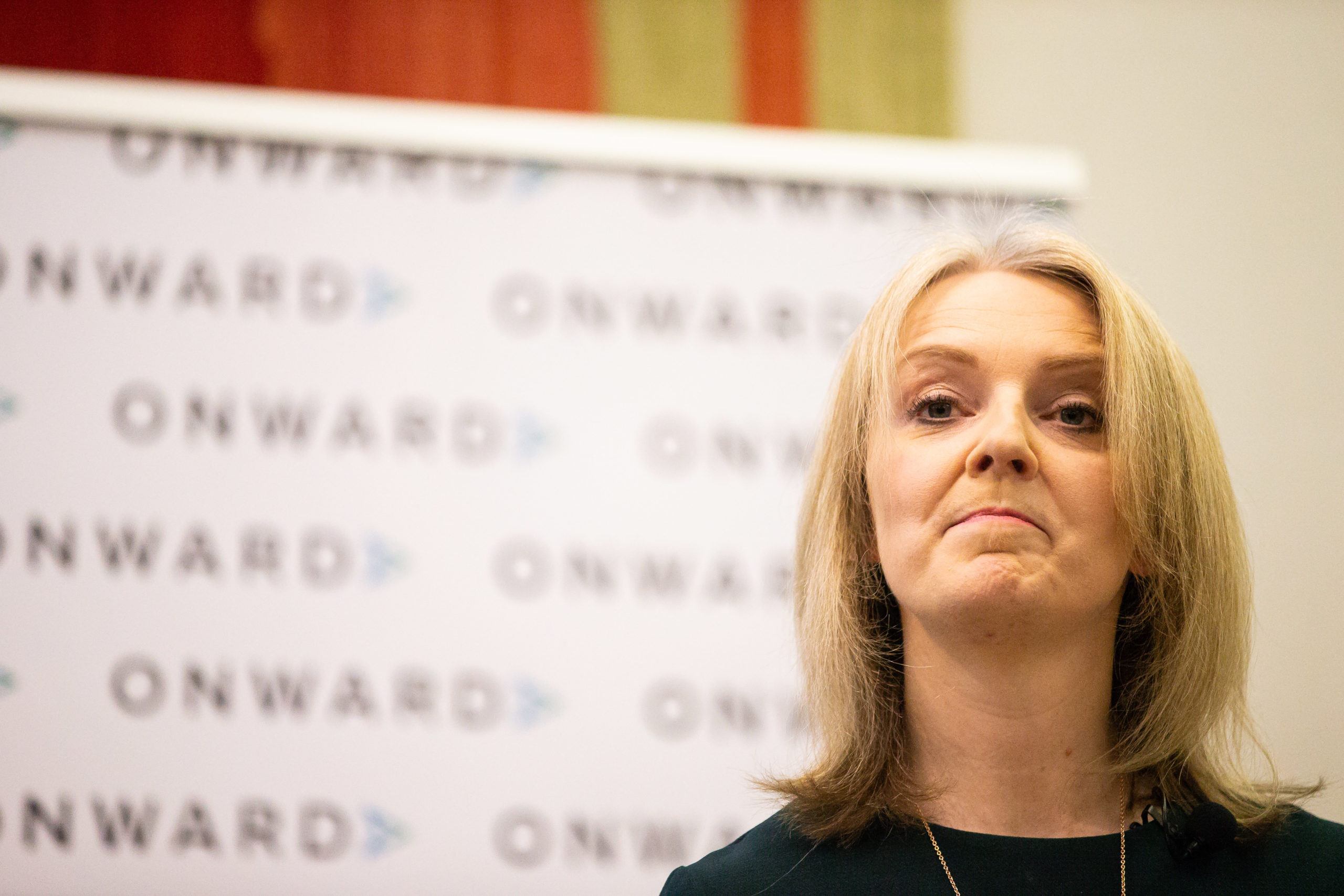Liz Truss gives a speech at think-tank ‘Onward’ on March 19, 2019 in London. (PLuke Dray/Getty Images)
Topping off a dispiriting few years for trans Britons, vital plans to reform legislation around legally changing one’s gender have been reportedly abandoned.
But ministers hope to, nevertheless, “placate” the LGBT+ community by introducing a state ban on conversion therapy, according to a source and a leaked document familiar to The Sunday Times.
So-called gay conversion therapy is often compared to torture and has been linked to higher risks of depression, suicide, and drug addiction.
Ban will be announced in July by Liz Truss, source claims.
All major UK health organisations have denounced the practice as damaging pseudoscience, yet while the Tories pledged to “eradicate” the cruel and traumatic practice two years ago, there has been no measurable progress.
Nevertheless, the minister for women and equalities Liz Truss is set to announce the “total ban” on reparative therapies carried about by religious groups and therapists in July. The proposed legislation will be brought forward late this year or next year, the insider noted.
In May, officers of the All-Party Parliamentary Group (APPG) on Global LGBT+ Rights called for Truss to take “urgent action” against the harmful practice, but her response remained vague.
In a letter to Crispin Blunt MP, chair of the APPG, Truss wrote: “I welcome the group’s strong support for this Government’s commitment to end the vile practises of so-called conversion therapy.

“I fundamentally disagree with attempts to forcibly change someone’s sexuality and I will shortly be bringing forward plans to end conversion therapy.
“I would welcome the opportunity to discuss this with you and members of the APPG and have asked my office to make arrangements for this to happen.”
Truss expressed unease at tackling the, at times, jumbled legality of a federal ban. In an almost laddered approach, she has often sought to emphasise her department’s aim to ban conversion therapy as a whole, but admitted there are complexities.
She noted that the ban would not collide with people seeking spiritual guidance from religious leaders in regards to their sexual orientation, but didn’t quite clarify whether the ban would be a wholesale regulation of psychotherapists and counselors.
Truss added: “Where dangerous conversion therapy practices are not already unlawful, I am examining the best ways to prevent them being conducted, without sending such practices underground.”
Conservative Parrty set to ban conversion therapy all the while rolling back trans rights.
As a result, the leaked plans appear as a double-edged sword to LGBT+ activists, who have long lampooned officials for gingerly banning conversion therapy but have also spearheaded campaigns to streamline the process by which trans people can update the gender marker on their birth certificates.
In reportedly gaining the former, the document has provided a bracing tutorial, activists warn, in years of hardship to come for trans folk.
After public consultation and a gruelling two years of stale delays, the country finally received its answer on which direction lawmakers are set to steer trans rights in the country.

Instead of listening to the overwhelming results of the consultation, where 70 per cent of the public backed self-declaration, ministers will instead introduce a trundling, rollback of trans rights that will tightly limit the spaces trans folk have access to.
It comes as “gender critical” voices have noisily blared concerns over single-sex spaces in recent years, and it appears that government leaders have cowed to the pressure.
With it, the GRA will be vastly unchanged, but bills constellating it will be altered, source suggested. For example, “safeguards” will be enforced to protect single-sex safe spaces, “reaffirming provisions in the Equality Act” which will “stop them being used by those with male anatomy.”
While guidelines will be introduced to streamline public lavatories across Britain’s patchwork of local authorities which have “given rise” to gender-neutral facilities.
